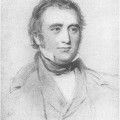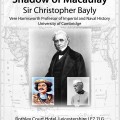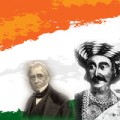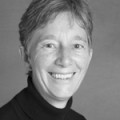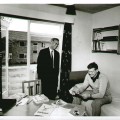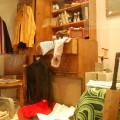‘Indian thought and the Shadow of Macaulay’
13 October 2014
- Thomas Babington Macaulay
- Professor Sir Christopher Bayly
On 24 October 2013 the distinguished historian Professor Sir Christopher Bayly delivered the Macaulay Lecture at Rothley Court, Leicestershire.
Chris Bayly, until 2014 Vere Harmsworth Professor of Imperial and Naval History at Cambridge, is Professor of History at Queen Mary University, London and Vivekananda Visiting Professor, 2014-15, at the University of Chicago. He is a trustee of the British Museum and was knighted for ‘services to history outside Europe’ in 2007. He was awarded the Wolfson History Prize for his book The Birth of the Modern World 1780-1914, which Linda Colley (Princeton) described as one of the ‘most significant works produced on global history in recent years’.
In his lecture Professor Bayly explained how Macaulay had become an iconic but sometimes misunderstood figure. He discussed in particular Macaulay’s notorious ‘Minute on Education’ of 1835, which urged the promotion of the English language in India and referred to Indian literature and the Hindu Religion in derogatory terms. After placing Macaulay’s writing in a wider historical context Professor Bayly explained Macaulay’s iconic position in contemporary controversies, including the Taliban attempt to justify the assassination attempt on the Pakistani schoolgirl and Nobel Peace Prize winner Malala Yousafzai.
Listen to the lecture and subsequent discussion.
Watch a video of Sir Christopher Bayly lecturing in Chicago on ‘Making Hinduism a ‘World Religion’.
Thomas Macaulay and Rothley Temple
Thomas Babington Macaulay was born in 1800 at Rothley Temple, which in the Middle Ages had been home to a sect of the Knights Templar, the ‘Poor Fellow-Soldiers of Christ and of the Temple of Solomon’. Although his family moved to London soon after he was born, Macaulay returned often to Rothley.
After studying at Trinity College, Cambridge, Macaulay became a leading reforming Whig politician, poet and a hugely popular historian. He wrote a series of popular ballads about heroic episodes in Roman history, including Horatius, about the single-handed defence of the bridge to Rome by the gallant Horatius.
His most famous work of history, The History of England from the Accession of James the Second, first published in 1848, portrayed England as ‘the home of civilisation and freedom’. At the time, only Sir Walter Scott and Charles Dickens could compete with Macaulay’s popularity as a writer. However, later readers have not always been so approving of the book. Karl Marx referred to Macaulay as a ‘systematic falsifier of history’ and Winston Churchill took offence at Macaulay’s slights on his ancestor, the Duke of Marlborough, stating that he’d like to ‘fasten the label ‘Liar’ to [Macaulay’s] genteel coat-tails’.
Leicestershire historian Terry Sheppard explains the history of the Babington and Macaulay family, with images of Rothley Court and an additional text about its history.
- Professor Catherine Hall
Thomas Babington Macaulay – Imperial Man and National Historian
On 7th December 2009 Professor Catherine Hall of University College London spoke on the 150th anniversary of the death of Thomas Babington Macaulay about Macaulay and his father as ‘Imperial Men’.
Find a summary of the lecture here. Read reviews of Professor Hall’s book, Macaulay and Son, by the London Review of Books, The Guardian and Reviews in History.
Read an article on Thomas Babington Macaulay.
1960s Student bedroom exhibition
6 October 2014
- Morris Hall, 1961. Photo: Loughborough University Archive
- The 1960s student bedroom display at Charnwood Museum
The beginning of October sees the return to Loughborough of its student population, taking up their studies after the summer break. Here, local heritage officer Fiona Ure discusses the experiences of Loughborough University students of the 1960s, as commemorated in a display at Charnwood Museum.
Hazlerigg Halls of Residence
Dr Herbert Schofield oversaw the building of the original Hazlerigg and Rutland halls of residence, which are now home to the University’s administration and the Vice Chancellor’s offices.
The furniture at Hazlerigg Hall was designed by Peter Waals (1870-1937). Waals was a Dutch cabinet maker, associated with the Arts and Crafts movement, who worked with Leicester-born Ernest Gimson.
In 1935 Waals was invited to act as a consultant in design at Loughborough College which was the main centre for training handicraft teachers in England. The furniture, as well as other fittings throughout the college, was built by final year students under his direction. A set of the bedroom furniture is on display in the exhibition. It was in use up until 2008 when Hazelrigg was converted into offices.
Loughborough Student Life in 1966
Loughborough University offered a wide range of social opportunities in the 1960s.
Sports on offer included, among many others, football, tennis and cricket. There were cycling clubs, darts teams and walking groups.
The Edward Herbert Building became the student union in 1966. Famous bands, such as the Rolling Stones and Pink Floyd, all played there in the 1960s. The building was also the venue for student ‘bops’.
Most students didn’t have a personal TV and watched programmes such as ‘Dr Who’ and ‘The Man from Uncle’ in communal sitting rooms. However, many students had radio. They listened to groups like the Beatles and the Kinks on Radio Caroline.
Loughborough University had its own cinema. In 1966 a student could have watched ‘Batman’ with Adam West, ‘Alfie’ with Michael Caine, ‘Our Man Flint’ with James Coburn, One Million Years B.C.’ with Raquel Welch and ‘Carry on Screaming’.
Personal hobbies would have taken up the rest of a student’s free time. You might read the latest James Bond book (‘Octopussy and the Living Daylights’ came out in 1966) or try your hand at cooking Italian style. Photography was also very popular. Many new types of camera were developed in the 60s.
Board and card games were also a major feature of life. As a student, you couldn’t afford to go out every night but you could always have fun playing favourite old games like dominoes or the latest thing, such as ‘Frustration,’ in Halls.
Fiona Ure, Local Heritage Officer
The 1960s Student bedroom was on display at Charnwood Museum until 4th January, 2015.
Do you have memories of Loughborough University in times gone by? Share them by emailing: a.s.mott@lboro.ac.uk
Read an article about watching The Beatles perform in Nottingham in 1963.
